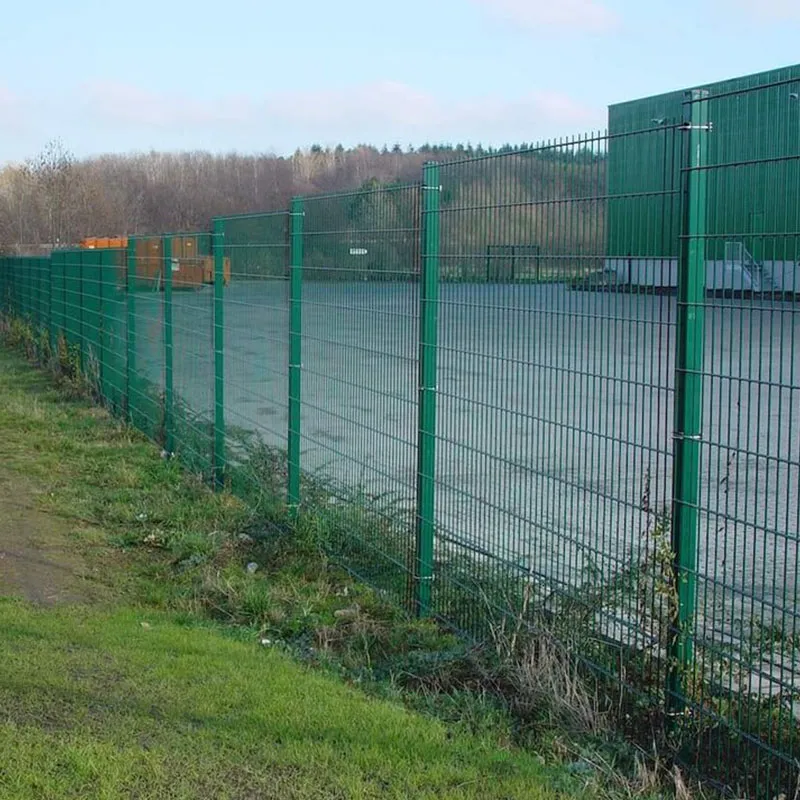Dec . 23, 2024 01:37 Back to list
Choosing the Right Wire for Your Farm Fence Needs and Applications
Exploring the World of Farm Fence Wire Essential Choices for Livestock Safety
When it comes to farming, ensuring the safety and well-being of livestock is of paramount importance. One essential component that plays a critical role in this endeavor is farm fence wire. While it may seem like a simple element of farm infrastructure, the type of fencing you choose can significantly impact the management of your land and the safety of your animals. This article explores various aspects of farm fence wire, helping farmers make informed decisions that align with their specific needs.
Types of Farm Fence Wire
There are various types of farm fence wire available, each designed to meet different needs and preferences. The most popular types include
1. Barbed Wire This classic option is effective for keeping livestock in and unwanted visitors out. The sharp barbs are deterrents for animals trying to escape, making it a common choice for cattle ranchers. However, it is essential to handle barbed wire with care to avoid injury to both animals and humans.
2. welded Wire Fencing Made of horizontal and vertical wires that are welded together, this type provides a strong and reliable barrier. It's suitable for containing smaller animals like goats or sheep, as the gaps in the wire can be smaller than those in traditional barbed wire fencing.
3. Electric Fencing This increasingly popular choice provides a shock to deter animals from crossing the boundary without causing permanent injury. Electric fencing can be particularly useful for rotational grazing systems, allowing farmers to create temporary boundaries that can be adjusted as needed.
4. High-Tensile Wire Known for its strength and durability, high-tensile wire allows for longer spans with fewer posts. It can be used in conjunction with insulators and other materials to create an effective electric fence system.
Factors to Consider When Choosing Fence Wire
Choosing the right fence wire is crucial, and there are several factors to consider
farm fence wire

- Animal Type Different animals require different types of fencing. For instance, horses may be more prone to injury with barbed wire, while cattle can usually be contained effectively with it. Understanding the behavior and size of the livestock involved will aid in making the best choice.
- Terrain The geographic location and landscape of the farm can affect the type of wire needed. For rocky or hilly terrains, a more robust and flexible fencing option might be necessary to withstand the elements and possible impacts.
- Budget Fence wire comes at various price points. While investing in higher-quality materials can lead to long-term savings, it's important to evaluate your budget and the overall financial plan for your farm.
Installation and Maintenance
Proper installation and regular maintenance of farm fence wire are critical for longevity and effectiveness. Before installation, it's advisable to plan the layout carefully to ensure enough fencing material is purchased. Proper installation also means securing the wire tightly and ensuring the posts are firmly placed in the ground to resist movement, especially in windy areas or where larger animals are kept.
Regular maintenance involves inspecting the entire fencing system for rust, damage, and corrosion. Prompt repairs can prevent more extensive issues down the line, ensuring that the fence remains effective in keeping livestock safe.
Environmental Considerations
In today’s ecological environment, sustainable practices are becoming increasingly important. Some farmers are now opting for biodegradable and eco-friendly fencing options that minimize harm to wildlife and the surrounding ecosystem. Additionally, using local materials can reduce the carbon footprint of transporting products over long distances.
Conclusion
In summary, farm fence wire is an essential aspect of livestock management that can greatly impact the safety and productivity of a farm. By understanding the different types of fence wire available and considering factors such as animal type, terrain, and budget, farmers can make informed decisions that meet their specific needs. The proper installation and ongoing maintenance of fencing will ensure that it remains effective for years to come, protecting both livestock and the integrity of the farm. As sustainability continues to be a priority, innovative fencing solutions will undoubtedly emerge, enabling farmers to manage their lands responsibly while ensuring the welfare of their animals.
-
Reinforcing Mesh: Core Material of the Construction Industry
NewsJul.07,2025
-
Welded Wire Fabric Reinvented for Modern Projects
NewsJul.04,2025
-
Superiority of Stainless Steel Woven Mesh
NewsJul.04,2025
-
Key Types of Razor Wire and Their Applications
NewsJul.04,2025
-
Durable Metal Fence Types for Security
NewsJul.04,2025
-
Best Materials for Livestock Fence
NewsJul.04,2025
products.







